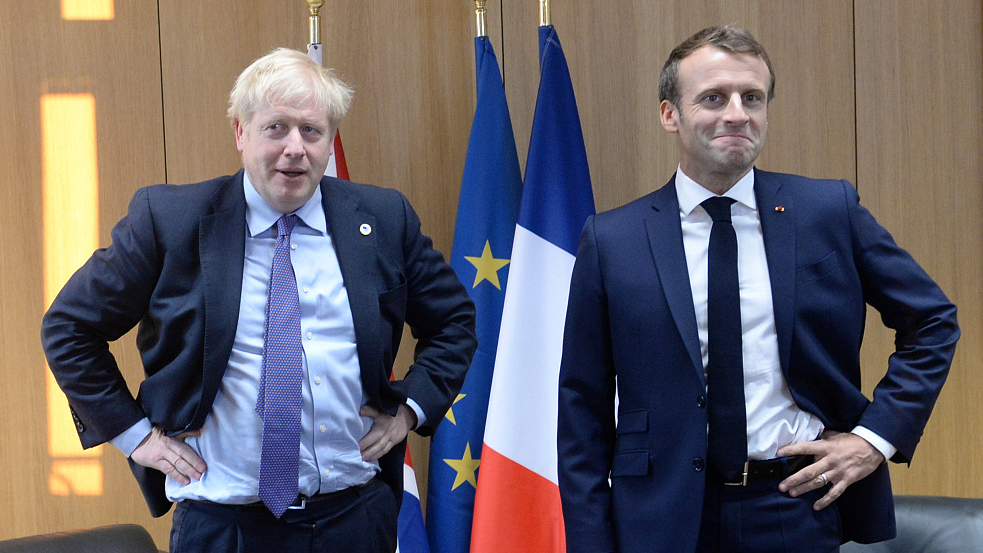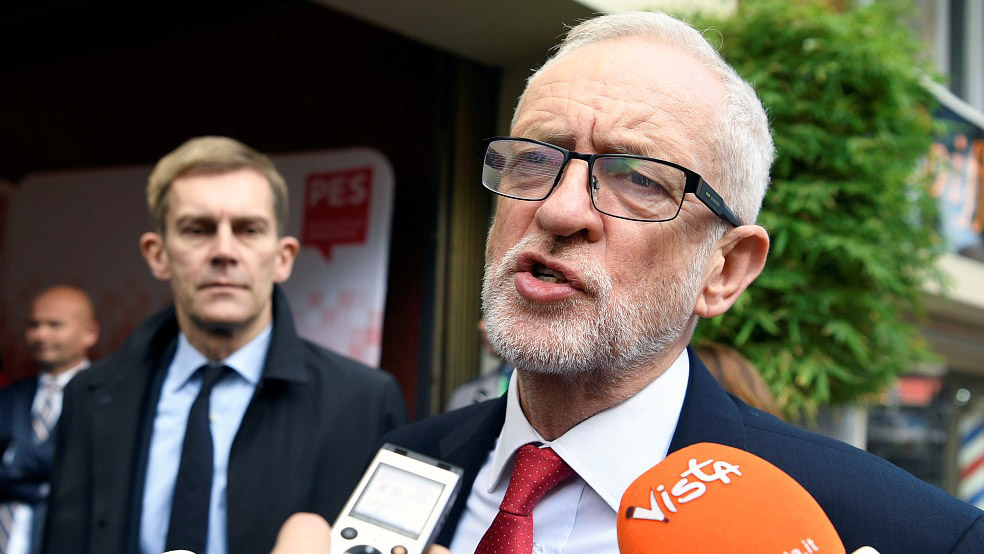
France is alone in opposition to a three-month Brexit extension, according to multiple reports on Saturday, as British MPs mull whether to back a snap election in a vote on Monday.
France was reportedly the only country in the EU27 to object at a meeting on Friday to an extension until January 31, the date regarded as the most politically neutral option for the bloc given it was cited in the delay request sent by UK Prime Minister Boris Johnson.
Reports on Friday suggested the EU had agreed in principle to grant an extension but had not settled on the length, and was waiting until after Monday's critical vote in the House of Commons on an election before announcing a decision.
What is France's position?
Bloomberg quoted two diplomats as saying France was pushing for a maximum one-month Brexit delay, while another told Reuters either a two- or four-week extension was favored.
"France wants a justified and proportionate extension," a source told Reuters. "However, we have nothing of the sort so far. We must show the British that it is up to them to clarify the situation and that an extension is not a given.”
President Emmanuel Macron has made similar noises ahead of previous Brexit deadlines before ultimately compromising, and an extension is expected to be granted to prevent a no-deal default exit on October 31.
EU agrees to delay Brexit, no date set
How can Johnson get an election?
The preference for a shorter delay is believed to be a ploy to keep pressure on MPs in Britain to make a decisive move: Either to back the deal struck between Johnson and the EU or vote in favor of an election.
If lawmakers back an election in Monday's vote a longer extension remains likely. "We're not being firm for the sake of being firm," the source told Reuters, "it's just that we've seen that simply giving time to time leads to nowhere."
The French stance – which could be helpful to Johnson – makes a formal EU summit on a delay, rather than an exchange of letters, more likely.
Election catch-22
The EU's decision to delay a decision on extension until after Monday's snap election vote was designed to put pressure on the UK parliament, but will also make voting for an election more difficult for many lawmakers.
MPs are more likely to back an election if a three-month delay is guaranteed, but the government is expected to go ahead with Monday's vote whether or not the EU has confirmed an extension.
01:55

Johnson on Friday again said he would not allow more parliamentary time for debate on his Brexit deal unless MPs backed an election, even if he loses Monday's vote.
"What we don't do is engage in pointless Brexitology in parliament, when parliament is simply committed to delay," the prime minister said in a pooled interview.
Labour leader Jeremy Corbyn, who Johnson on Friday urged to "man up" and back an election, told ITV he would only vote for a snap poll if Johnson guaranteed the UK would not leave the EU without an agreement.
Corbyn said the opposition party, which is split on holding an early election, would support the move "providing the prime minister comes to parliament on Monday and makes it absolutely clear he is going to make sure that there is no crash out, because his deal includes the possibility of a no-deal exit."
In a further potential twist in the coming days, there are indications opposition MPs may try to gain control of the order paper in the House of Commons so as to force debate on Brexit legislation.